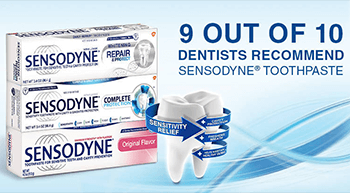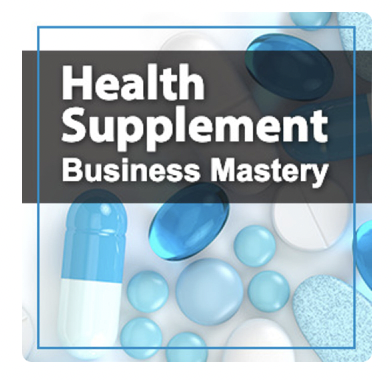
Trust is always eroding.
So it constantly needs to be replenished.
We once lived in a world where 9 out of 10 doctors meant that this stuff works.
We believed it.
It worked because the majority of doctors, or dentists, endorsed it.
Now we’re living in a world where we wonder what that 10th doctor knows that the other 9 don’t.

So what happened?
The culture changed.
We went from trusting authority to anti-authority.
The anti-authority angle in the direct response marketing of supplements has been used for decades.
Anti-authority has always been around and always will be.
Direct response supplement marketers use this angle in the form of Anti-Big-Pharma.
And they have been for years.
That’s nothing new.
Most supplement buyers are older and conservative.
They are naturally inclined to hold the belief of smaller government, and institutions.
So the anti prescription drug angle has always worked with that market segment.
But the market segment in their 80’s+, have always trusted doctors.
My mom has takes the supplement bottles I buy her to her doctor to see if they are okay to take.
Trust in the authority of doctors for certain market segments still holds.
In the classic book Influence: The Psychology of Persuasion, Robert Cialdini points out that obedience to authority holds a lot of power and value in a culture since there are many advantages and rewards to “conforming to the dictates of authority figures.”
Cialdini refers to the concept of ‘blind obedience’ and the fact that “we are trained from birth to believe that obedience to proper authority is right and disobedience is wrong.”
But that trust in authority has been eroding within a certain section of the population.
More so in the last 4 years, with the rise of fake news and the increase in conspiracy theories.
Perhaps we’ll see the effect of the erosion of trust in marketing of dietary supplements as well?
I think we already have.
It’s shifted from doctor endorsement to instagram influencer. (Trust in niche celebrities, a different type of authority.)
From instagram influencer to sustainable eco friendly packaging. (Trust in values, as short cut.)
And I’m sure the transition will continue to evolve before it changes again.
Trust is not something that’s set.
Trust is built with each interaction.
Each piece of communication.
Each bottle sold.
Not 9 out of 10 of them… All of them.
Each and every one.
So what happened to cause this change in trust for supplement brands?
Several cultural changes over the past few decades have contributed to declining trust in authority figures and institutions.
For example:
The rise of direct-to-consumer pharmaceutical marketing positioned “alternative” remedies against “mainstream” medicine.
Brands portrayed themselves as outside the system, with claims that insinuated consumers were being misled by Big Pharma and doctors.
This anti-authority messaging tapped into distrust of large institutions.
It resonated most with demographics who were naturally skeptical of big government and corporations, like older conservatives.
The spread of misinformation and conspiracy theories, accelerated by social media, has also bred public distrust. When basic facts are questioned, people doubt expert opinions.
Younger generations have less inherent trust in institutions, valuing independence and critical thinking more. They rely more on friends, influencers and transparency than claims of expertise.
Several high-profile scandals, coverups and mistakes by authorities and corporations have also shaken public trust across demographics.
So various cultural undercurrents of anti-authority beliefs, misinformation, generational shifts and organizational failings have steadily eroded mainstream trust in recent decades.
This requires brands to rebuild trust continually through their words and actions.
What can supplement brands do?
In the age of skepticism, brands must actively build and maintain trust through their communications and customer relationships.
Some ways supplement brands can get creative with trust-building include:
Radical transparency – sharing unsanitized information on their products, business practices, values.
Owning mistakes – being accountable when things go wrong rather than hiding.
Interactive engagement – two-way dialogue with customers via social media and feedback channels.
Values-alignment – championing social causes and responsibilities beyond profits.
Influencer partnerships – leveraging voices trusted by target demographics.
Responsible use of consumer data – respecting privacy and securing personal information.
Investing in communities – supporting local organizations meaningfully.
Accessibility and inclusion – making sure diverse groups feel represented in marketing and as customers.
Trust-building is now an ongoing creative endeavor central to brands’ relationship with consumers. It requires consistency between messaging and real-world actions.
The supplement brands that connect with today’s distrust of institutions will create authentic emotional bonds with consumers by earning their trust daily.
In Summary
- Trust is constantly eroding in our society, especially trust in authority figures and institutions. This means trust needs to be continuously replenished through actions and communications.
- We used to readily trust claims if they were backed by authority figures like doctors. Now people are more skeptical and wonder what ulterior motives or contrary information is being withheld.
- Several cultural shifts have contributed to this erosion of trust, including the rise of direct marketing that positions itself in opposition to big institutions like Big Pharma. This anti-authority messaging resonates with certain demographics.
- While some older, more conservative consumers may still trust doctor endorsements, younger generations are more skeptical. They look for trust signals like influencer endorsements and values-alignment like eco-friendly branding.
- Trust isn’t a fixed trait. It’s built through every interaction and communication. Brands must earn trust with each customer again and again, not rely on broad claims like “9 out of 10 doctors recommend…”
- As trust in institutions declines, brands must get creative and doubling down on trust-building with transparent communication, demonstrated values, and accountable relationships with customers. Trust must be earned, not assumed.
Discover the 3 funnels that can help your health supplement business succeed.

Listen to the Health Supplement Business Mastery Podcast for for dietary supplement entrepreneurs and marketers.



